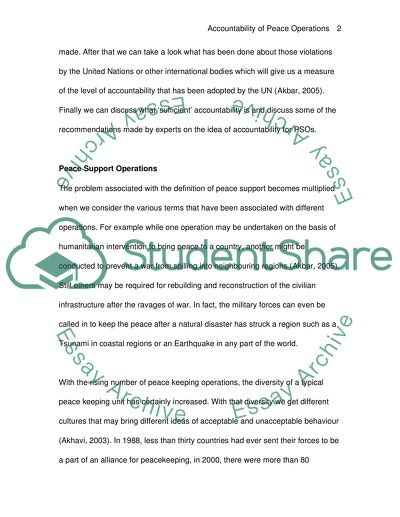Cite this document
(“Are peace support operations under the auspices of the United Nations Essay”, n.d.)
Are peace support operations under the auspices of the United Nations Essay. Retrieved from https://studentshare.org/miscellaneous/1539731-are-peace-support-operations-under-the-auspices-of-the-united-nations-sufficiently-accountable
Are peace support operations under the auspices of the United Nations Essay. Retrieved from https://studentshare.org/miscellaneous/1539731-are-peace-support-operations-under-the-auspices-of-the-united-nations-sufficiently-accountable
(Are Peace Support Operations under the Auspices of the United Nations Essay)
Are Peace Support Operations under the Auspices of the United Nations Essay. https://studentshare.org/miscellaneous/1539731-are-peace-support-operations-under-the-auspices-of-the-united-nations-sufficiently-accountable.
Are Peace Support Operations under the Auspices of the United Nations Essay. https://studentshare.org/miscellaneous/1539731-are-peace-support-operations-under-the-auspices-of-the-united-nations-sufficiently-accountable.
“Are Peace Support Operations under the Auspices of the United Nations Essay”, n.d. https://studentshare.org/miscellaneous/1539731-are-peace-support-operations-under-the-auspices-of-the-united-nations-sufficiently-accountable.


